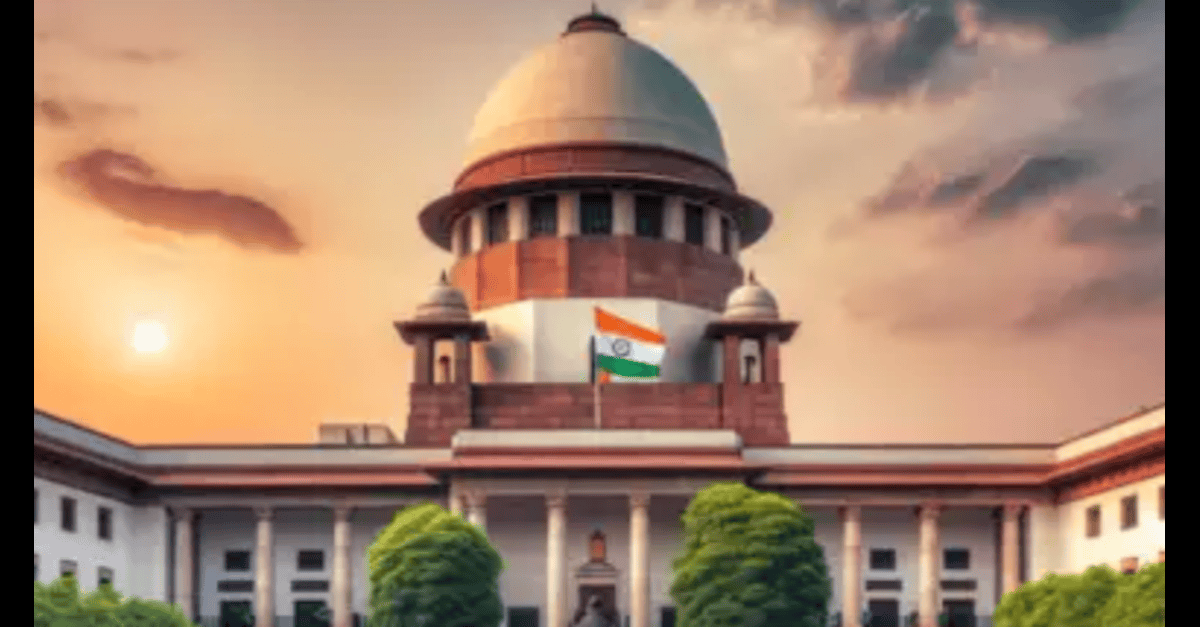Case Name: Bhupinderpal Singh Gill v. State of Punjab and Others
Case Number: Civil Appeal No. 183 of 2025 (Arising out of SLP(C) No. 17120 of 2022)
Judgment Date: 20th January 2025
Quorum: Dipankar Datta, J. and Manmohan, J
FACTS of the case
Bhupinder Singh Gill (appellant) was a senior medical officer who was near to his retirement on 31 March 2017 and faced disciplinary proceedings. He was charged with misconduct based on allegations of taking leave without sanction, his failure to participate in the polio program, and to follow the directions of the Election Commission. These disciplinary proceedings resulted in a 2% cut in pension as a penalty. The appellant challenged these proceedings before the bench of Punjab and Haryana High Court. The division bench of HC changed this penalty to a 2% cut in pension for five years. Unsatisfied with the decision of the division bench, the appellant sought a remedy from the Supreme Court and challenged these penalties.
ISSUES of the case
- Whether the disciplinary proceedings started against the appellant were procedurally valid?
- Whether the High Court has caused an error by not granting complete relief to the appellant.
- Whether the penalties charged to the appellant proportionate?
LEGAL PROVISIONS
Punjab Civil Services (Punishment and Appeal) Rules, 1970: It governs the conduct of the disciplinary proceedings.
Article 14,16,21 of the Constitution of India: It provides fundamental rights and ensures that there is fairness and protection of rights in the conduct of disciplinary proceedings.
Principles of Natural Justice: These principles help to ensure that the procedure followed is fair and prevents the use of prejudice or arbitrariness.
ARGUMENTS
Arguments for the Petitioner (Appellant)
The appellant contended that the disciplinary proceedings were started with the malafide intention. He argued that the conclusions derived by the Inquiry Officer are baseless and there is no valid evidence to prove those allegations. He contended that there is no proof of written communication that can provide evidence for his failure to fulfill his duties such as participation in government programs or failure to follow the directions of the Election Commission of India or taking leave without sanction. They also argued that charging a retired officer with penalties by cutting 2% of the pension amount is a disproportionate action.
ARGUMENTS OF RESPONDENT
The respondent argued that the appellant was provided with sufficient opportunity to defend himself from the charges against him and all the principles of natural justice were followed during the conduct of disciplinary proceedings. It was also contended that the charges are based on valid evidence and the penalty is proportionate to the misconduct of the retiring officer. They contended that the change of the penalty to a five-year duration by the division bench of the High Court shows that the bench has given a fair judgment.
ANALYSIS
The Supreme Court analyzed the disciplinary proceedings and pointed towards the several procedural errors and lack of valid evidence to prove these allegations of misconduct. The court observed that the case of prosecution is based on the telephonic communication to prove the denial of the leave application which lacks the evidentiary value. The court also held that the inquiry of the Inquiry officer is based on hearsay and extraneous factors such as “moral duty” . The court held that the charges against the retired officer were disproportionate and there is no valid proof to prove the allegations of misconduct. It was also observed that these allegations were not sufficiently grave for imposing the penalty such as pension cuts.
The evidence provided by the prosecution does not show that the failure to discharge the duties by the appellant during his leave has caused the disruption in the programs conducted by the government or has caused the violation of the directives of the Election Commission.
JUDGMENT
The Supreme Court quashed the orders of the Single Judge and the Division Bench. It set aside the disciplinary proceedings charges and the penalty on the appellant. It was also held by the court that the disciplinary proceedings were unfair and the arbitrary use of the powers. The court held the appellant should be awarded the full pension amount and directed the state government to refund the cut in his pension with 6% interest within the period of three months. The appellant was also awarded with the costs of 50,000 Rs.
CONCLUSION:
This judgment shows the importance of following the correct procedure while starting disciplinary proceedings or actions. It serves as a reminder to the Inquiry officers that the disciplinary actions must be based on valid evidence and there should not be a malafide intention in charging penalties. This ruling shows that the principles of arbitrary actions and misuse of power have no place in the state committed to the welfare of the citizens and the protection of the rights of the citizens. The Supreme Court’s judgment will serve as a landmark precedent to reaffirm the importance of upholding justice and ensuring transparency in the conduct of administrative processes.
“PRIME LEGAL is a full-service law firm that has won a National Award and has more than 20 years of experience in an array of sectors and practice areas. Prime legal falls into the category of best law firm, best lawyer, best family lawyer, best divorce lawyer, best divorce law firm, best criminal lawyer, best criminal law firm, best consumer lawyer, best civil lawyer.”
WRITTEN BY: MUSKAN.


